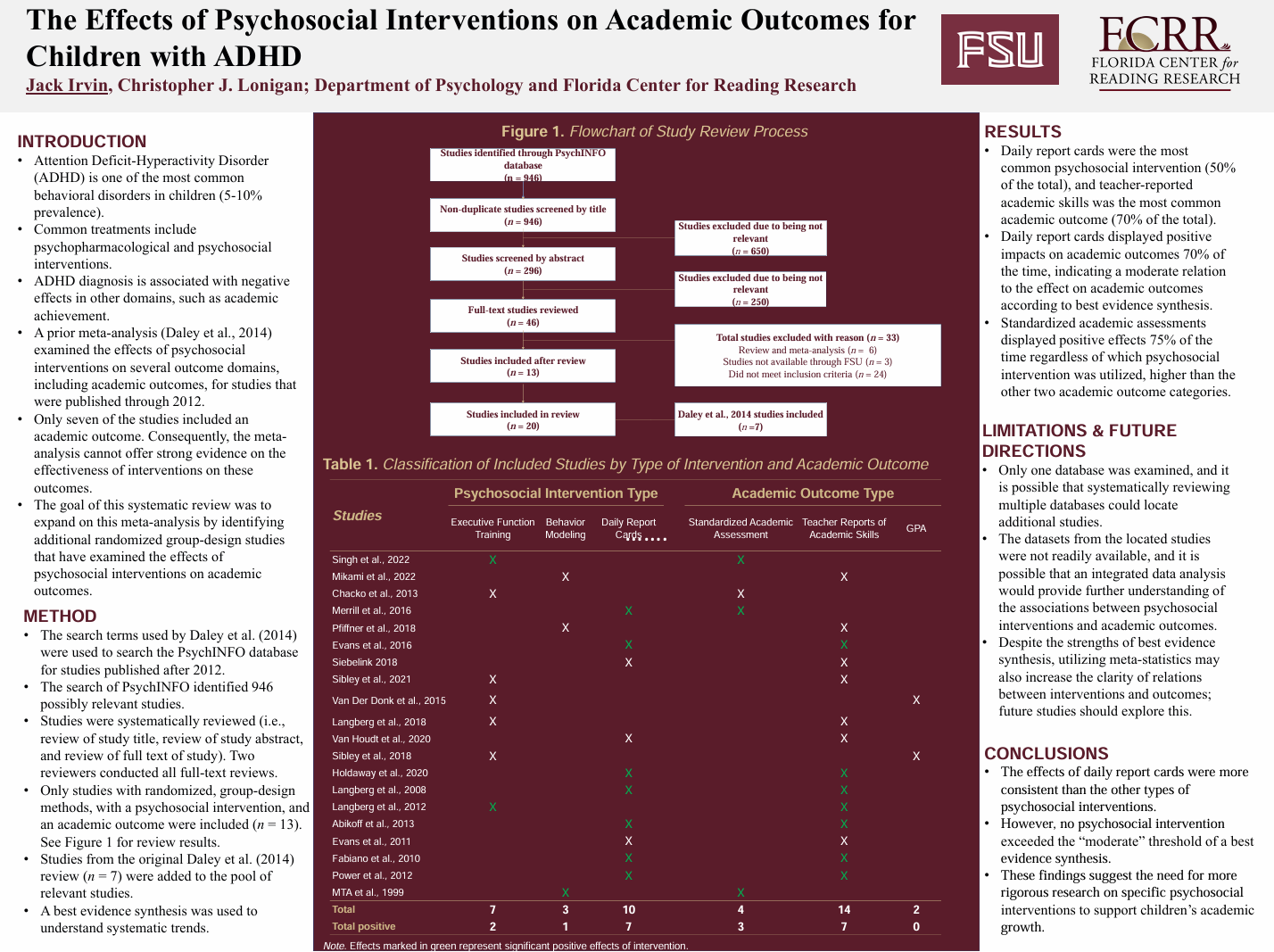Research Symposium
25th annual Undergraduate Research Symposium, April 1, 2025
Jack Irvin Poster Session 4: 3:00 pm - 4:00 pm / Poster #244

BIO
I am a senior majoring in psychology with a strong interest in understanding academic outcomes in children, particularly how learning disorders impact their educational trajectories. My research focuses on how different domains of conditions such as ADHD and ODD can be identified from different reporters and how they influence these academic outcomes. In my time in undergraduate studies, I have gained experience in psychological research, developing skills in data analysis, and behavioral assessment. I have also worked closely with faculty on projects related to child development and learning disabilities, further deepening my passion for clinical research. After completing my undergraduate degree, I plan to pursue a Ph.D. in Clinical Psychology, where I aim to continue researching the intersection of learning disorders and academic success. My goal is to contribute to evidence-based interventions that improve educational experiences for children with learning challenges, ultimately fostering a more inclusive and supportive learning environment.
The Effects of Psychosocial Interventions on Academic Outcomes For Children With ADHD
Authors: Jack Irvin, Christopher J. Lonigan PhD.Student Major: Psychology
Mentor: Christopher J. Lonigan PhD.
Mentor's Department: Department of Psychology Mentor's College: College of Arts and Sciences Co-Presenters: N/A
Abstract
Attention Deficit-Hyperactivity Disorder (ADHD) is one of the most common behavioral disorders in children, affecting 5-10% of school-aged children in the United States. ADHD symptoms include problems of inattention, hyperactivity/impulsivity, and lack of organization. Common treatments for ADHD include psychopharmacological and psychosocial intervention. An ADHD diagnosis, as well as an elevation of constituent symptoms, are also associated with negative effects in other domains such as social and academic achievement. Studies suggest the use of stimulant medication has a limited effect on academic outcomes. Previous studies have explored the effects of ADHD on academic outcomes, but academic outcomes are defined broadly ranging from academic productivity to scores of standardized assessments of academic skills. This study was a meta-analysis/best-evidence synthesis of studies of psychosocial treatments for ADHD that included an academic outcome. A PsychINFO search identified 946 studies. This pool of studies was refined systematically by screening titles, abstracts, and then full text of studies, The resultant 13 studies were combined with seven studies summarized by a prior meta-analysis (Daley et al., 2014). Interventions in these studies were classified as executive-function training (n=13), behavior modeling (n=3), and daily report cards (n = 9). Academic outcomes were classified as teacher reports (n=14), direct assessment of children's academic skills (n = 4), and grade point averages (n=2). Results of these 20 studies indicated that there was no strong level of evidence for a relation between these psychosocial interventions and children’s academic outcomes.
Keywords: Children, Academic Outcomes, Interventions

